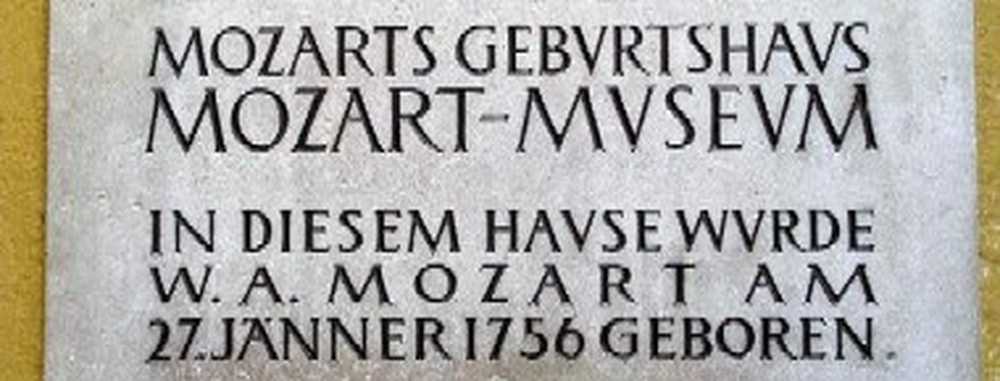Timothy Sherman
0
2027
231
First of all, my disclaimer. Music is quite a personal thing. Everyone has their own favorites, what music helps them get through their workload. This article aims to contribute to your choices to possibly improve productivity through your music choices.
iTunes has loaded and we're going to start work. What album do you play? Does it really affect your performance in front of the computer? I think it does. Let's take a non-work related example first:
Music Helps You Sleep
Last year a Taiwanese research group studied the affects of music on 60 elderly people with sleeping problems.
The music group were able to choose from six tapes that featured soft, slow music - around 60-80 beats per minute - such as jazz, folk or orchestral pieces.
Note the slow BPM [beats per minute]. Researchers found that the music lowered heart and respiratory rates, aiding in a more peaceful sleep. The group reported a 35% improvement in sleep, including a better and longer night's sleep with less 'dysfunction' during the day.
Lower BPM lowers heart rate and breathing, and so calms you into a better sleep.
Let's look at what you could call the opposite: music with an upbeat tempo.
Increase the BPM Advertising
You instantly have more energy, right? Plus faster tunes are, generally, more upbeat in feeling as well. They are lighter and get you happy in what you're doing. It's common knowledge that a happy song will make you feel happy as well.
If you're working, how about an instant lift?
So let's take an example. When I started my work today, I was playing The Arcade Fire's new album, Neon Bible. As good an LP as it is, it was completely wrong for working at the computer [for me]. Here's why:
Firstly is the aforementioned tempo. It's not particularly upbeat and has not so much uplifting sequences [in comparison to their previous album]. But there's another problem with my choice.
Have I heard this before?
It's new, I just picked it up and was breaking it in. Personally, I can't listen to something new without really listening to it. Every so often I ask myself, 'Do I like this? Why isn't it like their other stuff? etc etc
So I'm distracted. And that's a continuous 40 minute distraction that comes in and out of my head. It's like no air conditioner on a hot day, I'm regularly interrupted by discomfort.
Album No.2 is The Red Chord's first album. I know this one very well and it's fast. It has energy that should get me going. It's a fun album for me so I can enjoy myself while I work. So what's the problem this time?
Too many changes. It's a fairly very erratic record. I can't get in a groove with this! I may be enjoying myself, but I'm constantly stopping to listen. We need a change. Advertising
Before we do that, though, let's look at classical music.

I'm a fan. A casual but regular listener. So I have that option. But why classical?
Read Next

10 Small Changes To Make Your House Feel Like A Home

What Makes People Happy? 20 Secrets of “Always Happy” People

How to Sharpen Your Transferable Skills For a Swift Career Switch
Scroll down to continue reading articleHave you heard of the Mozart Effect? Scientists have generally disproven the significance of this phenomenon but we will humor it here, particular because this author believes there is some merit to it.
The term was coined by Alfred A. Tomatis, a French Ear, Nose and Throat specialist, whose experiments playing the music of Mozart to 3 yr olds found increase in brain development. That old chestnut about playing your unborn child classical music has scientific foundation.
It apparently increases spatial-temporal reasoning. Various studies using college students have shown improvements in test results as a result of listening to 10 minutes of Mozart's Sonata for Two Pianos in D Major.
However, spatial reasoning is the brain's ability to orientate shapes in space - relevant to higher mathematics, architecture, engineering, drawing and chess. Sadly, whether you're working with shapes or not is irrelevant to this article. We're looking at music for productivity.
Worth mentioning is how classical music can, in general, be calming and, because it generally involves slow phrasing, can aid with keeping you moving on your work tasks. This refers to that 'groove' I mentioned earlier.
Also there are, unless you're listening to an opera, no lyrics. Words are distracting, especially when writing! But is this enough? Classical pieces can have sudden rises and many variations in feeling and tempo, so that distractionless groove I'm looking for is interrupted.
So I put on Brian Eno's Discreet Music. The title track is 30 minutes of ambient-esque classical phrases. I'm not distracted and I become very peaceful. I can work well under this spell for a little while, but I usually become too calm to continue work for a descent period of time. Advertising
My solution, Shpongle. I'll confess, it's psy-trance; but I'm not a hippie!
Again, I'll reiterate that musical choice is based on your tastes. Everyone is different. Take this explanation of why I put trance music on while writing, and relate it to something that you like which has similar characteristics. I'll have examples at the end.
As you know, trance has a continuous beat. “Doof Doof,” as they say here. It's a groove, and because it is very up tempo it works really well with getting my energy level up and keeping it there. Many trance songs have lyrics, although minimal, it may help choosing albums with very little to none - usually LPs from the mid-nineties.
Also trance music has gradual climaxes and anti-climaxes. This is great for writing. You begin typing while the track gets started, and while it builds, you begin writing more profusely and with conviction. That epic feel in trance music helps you from dropping out and procrastinating. This work I'm doing is important!
Finally I would also like to mention that trance albums are generally on the long side, with tracks running at around 2-3 times longer than 'regular' songs. Sometimes the end of a song can feel like an interruption. If the songs are longer, you have more time of straight work.
When choosing music that you want to help you work, try thinking of these points:
- 1. The groove. Upbeat tempos will help with your energy and, like a jogger, keep you going.
- 2. Familiarity. This helps you fall into your work without thinking about the music.
- 3. Continuity. Something with gradual or subtle changes will keep distractions at bay. Familiarity with the music helps in this instance also.
- 4. Length. A long song means you have more time. Think of that 10 minutes of solid work you want to knock out. If you have a song that spans that time without interruption, all the better.
Now let's look at some more examples, that I can think of, of artists who may work as well.
Slower, relaxing: Lee Perry, Horace Andy and other dub artists.
Slower, heavy: Graves At Sea, Jesu and other sludge bands. Advertising
Faster, heavy: Slayer, Nile and other thrash or grind bands.
Faster, electronic: Goldie, Ram Trilogy and other drum'n'bass without lyrics.
Continuous, older: Pink Floyd's Dark Side of the Moon.
Continuous, newer: Meshuggah's Catch 33.
Naturally, there is so much music out there that could improve your workflow. Why not think about what might be better than you're regular listening habits? Maybe completely ambient tracks work for you, or talk radio is perfect, but thinking about your choices can immediately benefit your output.
What works for you?
Other tips:
- Wear headphones. It's better audio and privacy rolled into one. You are less likely to be disturbed by others if you're wearing cans.
- Don't listen to records. I love my vinyl, but getting up to flip sides and change records every 15 minutes is a big workflow interrupter. Make a playlist on your computer that reflects your schedule. Same goes for CDs.
- If you must, download music while you're away from the computer. The temptation is too great to check download status, and if complete, listen to your new gems.
The Mozart Effect - [TheSketpicsDictionary]











